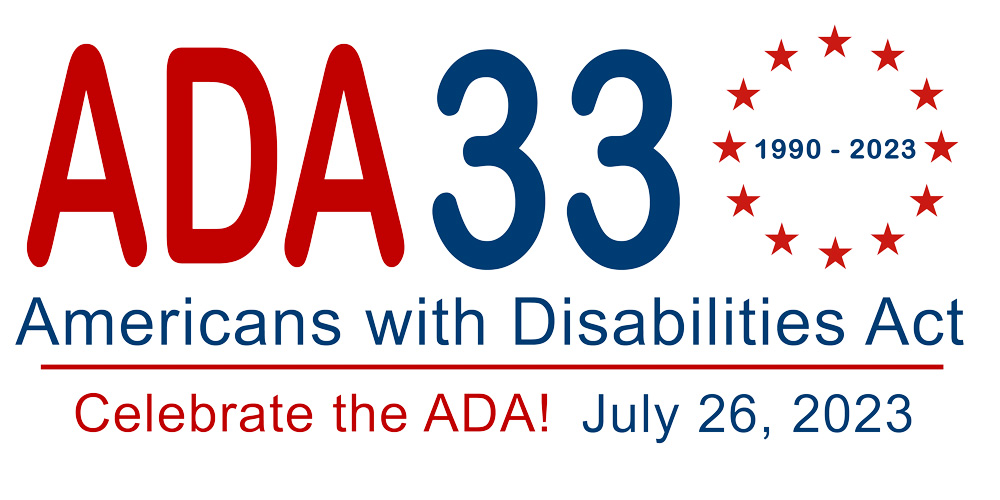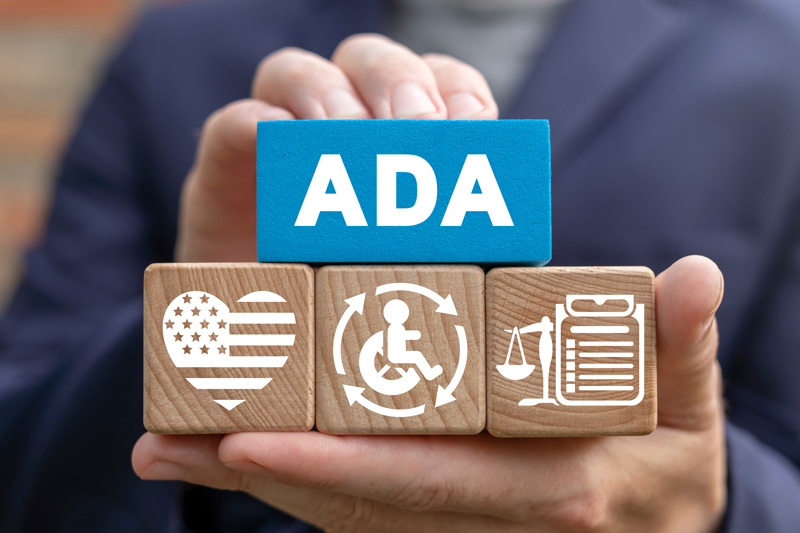Home / Stories /
The Anniversary of the Passage of the ADA: Celebrating Progress and Advocating for Inclusion
33 years ago on July 26, 1990, the Americans with Disabilities Act (ADA) was signed into law.

On July 26th, we commemorate the passage of the Americans with Disabilities Act (ADA), an essential piece of legislation with both benefits and some challenges. As we reflect on the progress made since its passage, the IHDD reaffirms our commitment to advancing the rights and well-being of people with disabilities.
The ADA, signed into law in 1990, was a landmark achievement in support of disability rights. It provided comprehensive civil rights protections, ensuring that people with disabilities are protected against discrimination in various aspects of life, including employment, public accommodations, transportation, telecommunications, and more. This legislation has opened new doors of opportunity for individuals with disabilities, enabling them to pursue meaningful careers and participate more actively in society.
 The ADA has increased accessibility of the built environment and transportation services. It has helped people with disabilities to access state and local government services as well as private businesses. The Act has also encouraged employers to adopt inclusive hiring practices, leading to increased employment opportunities for people with disabilities.
The ADA has increased accessibility of the built environment and transportation services. It has helped people with disabilities to access state and local government services as well as private businesses. The Act has also encouraged employers to adopt inclusive hiring practices, leading to increased employment opportunities for people with disabilities.
Despite the progress made, there are still systemic barriers that hinder the full realization of the ADA’s promises. For example, not all buildings and public spaces are fully accessible, and some employers still have biases against hiring individuals with disabilities. Continued efforts are needed to address these challenges and create a more universally accessible environment.
The ADA has made strides in combating discrimination, but stereotypes and stigma surrounding disabilities persist. These stereotypes can lead to prejudice and exclusion, hindering the integration of individuals with disabilities into various aspects of society.
While the ADA provides crucial legal protections, its implementation has sometimes faced challenges. Ensuring compliance and enforcement across all sectors is a complex task, requiring ongoing advocacy and awareness.
Looking to the future, the IHDD emphasizes the importance of continuing to build upon the ADA’s foundation. By addressing the areas of improvement, such as systemic barriers and stereotypes, and emphasizing the benefits, like equal opportunities and inclusive practices, we can work towards a more accessible and welcoming world for everyone. Through research, training, advocacy, and policy changes, we can further advance the rights and well-being of people with disabilities.
To learn more, please click here.


